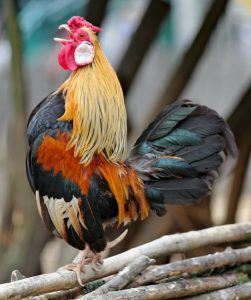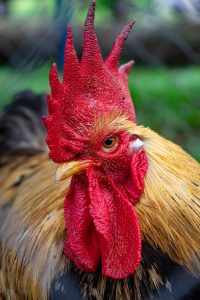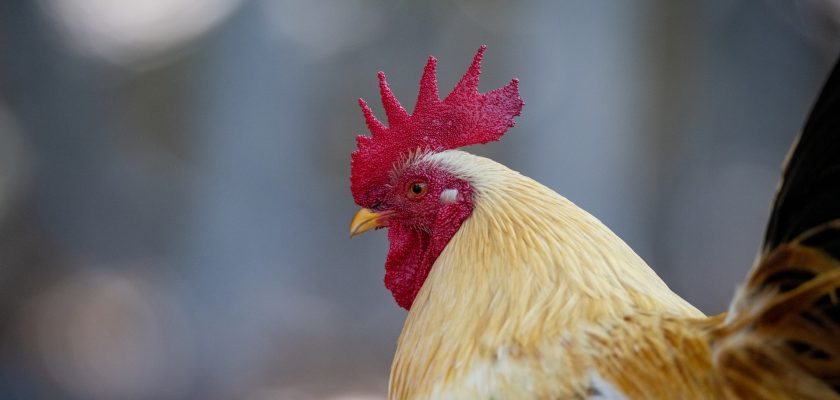If you want to know how to stop a rooster from crowing, there are a few things you can do. One thing you can do is keep the rooster on a diet. You can also try to remove any nighttime stimuli that can lead to the rooster crowing. Another option is to do surgery to cut off the rooster’s ability to crow.
Rehoming a rooster
A rooster is a bird with a strong instinct to protect its flock of hens. It crows to alert the flock to danger. However, it is not necessarily aggressive.
When you need to rehome a rooster, consider contacting an animal shelter or rescue group. These groups can help you get rid of a rooster and place it in a home where it will be happy and safe. You can also adopt or foster a rooster.
Some cities have ordinances prohibiting roosters from being kept in residential areas. However, it is not impossible to keep a rooster in an urban setting. If you live in an urban neighborhood, you may want to explore your options.
You can search the internet for a rooster rescue group in your area. Then, you can put an ad on Craigslist, a site that allows people to buy and sell unwanted animals. In addition, you can contact a local rescue group, such as Vine Sanctuary.
You can even give a rooster away to a friend or family member. However, you should be extra careful.
A rooster can be a wonderful addition to your flock. He will help keep the hens in order and will crow at different times throughout the day. And, he will source tasty grubs for the hens.
Unfortunately, rehoming a rooster can be difficult. This is why it’s a good idea to get a few tips.
First, consider the type of rooster you need. There are several types, including purebred and fancy breeds. Fancy and purebred breeds tend to be easier to rehome.
Secondly, consider the age of the rooster. Young roosters are more likely to find a permanent home. But full grown roosters are more difficult to get rid of.
Surgery to reduce rooster’s crowing to whisper
One of the most challenging aspects of having chickens is reducing the number of roosters. Luckily, there are a few things you can do to reduce the amount of crowing your roosters do. However, the nitty gritty of the matter is how you go about doing it. Some methods, such as separating the roosters from the flock, can make the problem worse. So, what is the best way to reduce rooster crowing?
The short answer is you need to do two things. First, you need to find a reputable veterinarian to perform the surgery. Second, you need to be prepared to pay for the privilege. You’ll be surprised to learn that there are a few different types of rooster crowing treatments available. While some are more expensive than others, most are more cost effective over the long run.

Photo by Dušan veverkolog on Unsplash
Although there are several types of rooster crowing solutions on the market, the most effective is to simply remove your roosters. However, this is not an option for everyone, and may require more work than you bargained for. This is where your savvy hens come into play. They are your key to a happy and healthy flock, and it’s up to you to ensure they have a smooth transition. To do so, you’ll need to be patient and persistent.
Other options include buying a new rooster, or separating your roosters from one another. However, the latter is akin to trying to put your hand in the mouth of a grizzly. If you can’t deal with the stress of separating your hens, you might want to consider a more permanent solution. For example, there are a number of rooster pens out there that can last up to 10 years, a very good investment.
Feeding and watering
If you’re tired of your rooster crowing, you’ve come to the right place. There are several ways to stop a rooster from crowing. These methods aren’t guaranteed to work, but they can help.
One of the most common causes of rooster crowing is boredom. Bored chickens can be noisy and destructive. This means you have to give your rooster something to do. Providing him with hay or straw bales can help keep him busy.
You should also provide your rooster with plenty of water. Many roosters are prone to dehydration when it is hot, so make sure you supply your rooster with plenty of fresh water. It is important to replace the water they drink with fresh water later in the day.
When a rooster crows, he is trying to communicate with his flock. He may want to tell them that something is wrong, or that they need to take shelter. They may also be trying to warn them of a predator.
Another reason why a rooster crows is when they are in need of food. Some roosters are curious about their diet and they may be more likely to crow when they are not getting what they need.
If your rooster is not eating, he could be having trouble digesting the food he’s been given. This can be due to a low salt level in his body. Adding salt to his water can correct this.
Roosters can become aggressive if they’re hungry or if they’re fed too much meat. They can also ingest dangerous objects, so always check your bird’s stomach before feeding it.
Keeping your rooster separate from the rest of the flock can also prevent a rooster from crowting. Chickens are very smart creatures. However, roosters are very territorial. That means they may become aggressive with other roosters or hens.
Nighttime stimuli
When you are keeping a rooster, you might be wondering how to stop a rooster from crowing at night. There are some things you can do to minimize this problem. The first thing is to understand how roosters crow. Knowing what triggers their crowing can help you solve the problem.
Some roosters crow because of stress, boredom, or excitement. They may also crow to protect their flock. This is done to protect the hens from predators.
You can also try limiting stressors and stimuli that can trigger roosters’ crowing. One way to do this is to keep a rooster in a dark place during the night. Another is to have a rooster collar. These collars limit the amount of air that can reach the rooster’s voice box.
You can also try to reduce the number of roosters in your flock. If there are too many roosters in your flock, they will not have enough space and will be more likely to crow at night. Having a smaller flock also means that your rooster is less likely to be disturbed.
A rooster can also be triggered to crow at night because of noise or light. This is especially true if the rooster is a loud vocal type. To prevent this from happening, you can block out the sounds of outside noise with a blackout box.
Another way to prevent a rooster from crowing at night is to keep them in a closed coop at night. Make sure that it is sound proof and is well insulated. Also, you can try to cover the cage with a thick blanket. That will minimize the noise and leave the room open for air.
Aggressive roosters aren’t safe for breeding
If you’re wondering how to stop aggressive roosters from breeding, there are a few simple steps you can take. First, you need to determine the cause of the problem. This can be tricky, but figuring out the trigger can help you avoid a rooster attack before it gets out of control.
The easiest way to know if your rooster is acting aggressive is to observe him. Look for signs of aggressiveness like pecking at you, stamping your feet, and laying low.

Photo by Arib Neko on Unsplash
Another thing to look for is whether the rooster is showing off. He might be flapping his wings, strutting around the coop, or raising his hackle feathers.
If you see any of these signs, it’s a good idea to get him under control. You can do this by removing any sharp spurs, clipping his feet, and giving him a few treats. Eventually, you’ll be able to train him to behave better.
Another option is to re-home him. Aggressive roosters can be dangerous, so re-homing him is the best way to go. A rooster will do his job by protecting his flock, and you don’t want him to do harm to other animals.
Another way to stop roosters from breeding is to give them a proper place to do their business. Hanging a cabbage or a hay or straw bale can do the trick.
Lastly, you can always try to work with your rooster to create a more harmonious relationship. This can be a long and drawn out process, but it’s worth it in the end.
Fortunately, there are steps you can take to stop your rooster from getting aggressive, and some are even easier than others. But no matter how you go about it, the main point is to keep yourself safe.
